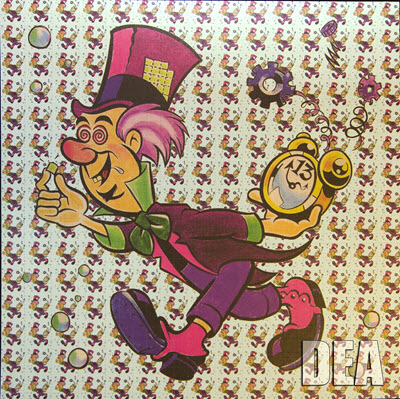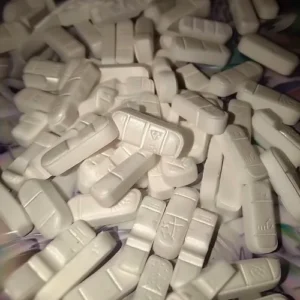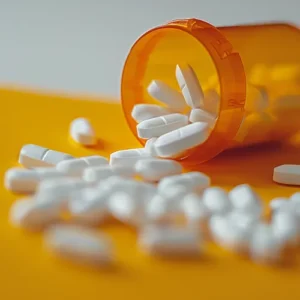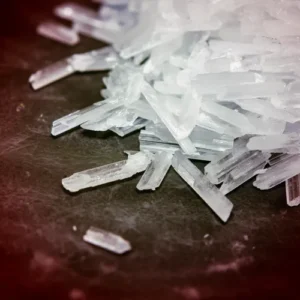LSD is an abbreviation for the chemical lysergic acid diethylamide, most commonly referred to as ‘acid’. LSD is a potent hallucinogen, meaning that most users experience some distortion of their environment and reality. This can include both visual and auditory hallucination, seeing and hearing things that aren’t there. The act of taking LSD is commonly called a ‘trip’. A trip can be positive or negative, and there’s no way to know how taking LSD will affect you and once you start, there is no stopping the experience, you have no choice but to ride it out.
What LSD looks like
LSD is most commonly sold as tiny squares of paper that have been saturated with the chemical. The squares typically have a picture on one side. The image does not indicate the strength of the drug or the likely effect, but follow current film or fashion. It is sometimes also sold in the form of tiny tablets which are called microdots, or sometimes just dots.
Police may use a LSD Drug Identification Test to confirm if a suspect substance contains the drug.
How LSD is used
The tablet or paper is placed on the tongue to dissolve.
Immediate effects
Being such a strong hallucinogen, users experience their environment very differently from the way it really is. They may see bright colours and bizarrely distorted sights or hear strange sounds. The experience is called a trip and may last up to 12 hours.
How long the experience lasts and whether it is good or bad depends heavily on the mood of the user and who else is around. Every trip is different and a bad trip can be quite frightening. Once it starts, the only thing that can be done is to keep the user safe and ride it out. A bad trip may leave the user feeling paranoid and depressed, even cause panic. LSD users can even think they are going insane, forgetting that what they are seeing and hearing is due to the drug.
The nature of a trip is unpredictable, but bad trips are more likely in users that are already nervous, anxious, uncomfortable, or otherwise in a negative state of mind. Hallucinations can cause accidents.
Long term effects
LSD can aggravate mental illness, including schizophrenia, anxiety, and depression. Long after the trip, people can experience ‘flashbacks’, suddenly re experiencing the hallucinations they had during earlier trips, sometimes even years after the fact. Long term users may never quite be able to function normally.
In addition to mental health concerns, prolonged LSD use has been linked to physical health issues as well. Chronic LSD use can lead to persistent visual disturbances, as well as changes in brain function and structure. It may also adversely affect cardiovascular health and increase the risk of stroke.
Despite the potential risks, LSD remains a popular recreational drug among some individuals. Its illicit nature and the lack of regulation surrounding its production and distribution mean that users often have no way of knowing what they are taking or how strong it is. This can lead to overdose or unexpected adverse reactions.
Legal status of LSD
LSD is classified as a class A drug in the UK, possession, sale, and production of LSD are illegal.
Drug Testing Index
LSD is just one of many drugs that can be screened for using a drug test kit from Zoom Testing. Visit our Drug Testing Index page for a comprehensive, alphabetical list of drugs.
Photo by Zoom Health
Zoom Testing is a leading UK drug testing company and a supplier of Drug Test Kits.
This post was originally published in January 2017 and has been updated since.





